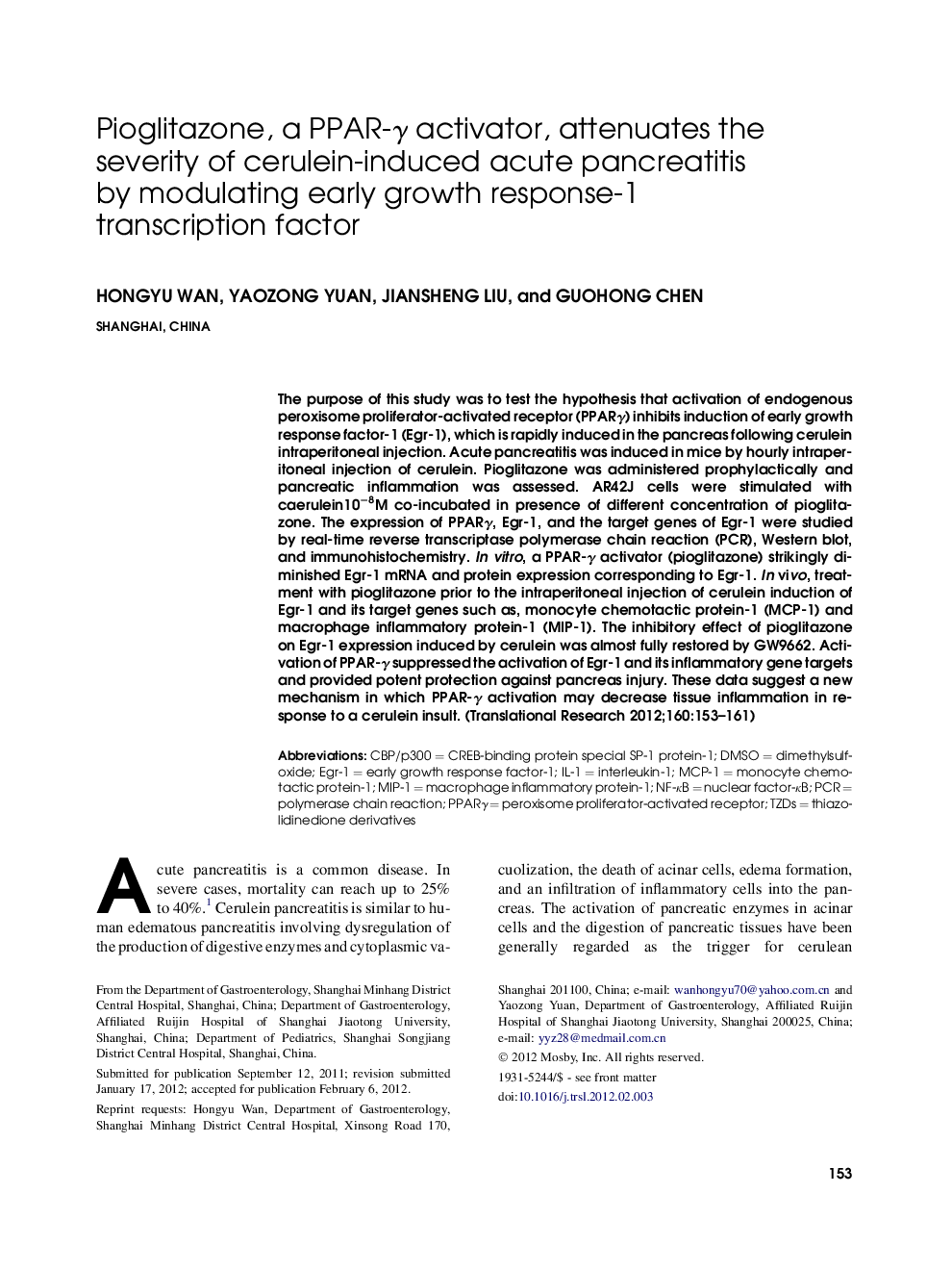| Article ID | Journal | Published Year | Pages | File Type |
|---|---|---|---|---|
| 3840691 | Translational Research | 2012 | 9 Pages |
The purpose of this study was to test the hypothesis that activation of endogenous peroxisome proliferator-activated receptor (PPARγ) inhibits induction of early growth response factor-1 (Egr-1), which is rapidly induced in the pancreas following cerulein intraperitoneal injection. Acute pancreatitis was induced in mice by hourly intraperitoneal injection of cerulein. Pioglitazone was administered prophylactically and pancreatic inflammation was assessed. AR42J cells were stimulated with caerulein10−8M co-incubated in presence of different concentration of pioglitazone. The expression of PPARγ, Egr-1, and the target genes of Egr-1 were studied by real-time reverse transcriptase polymerase chain reaction (PCR), Western blot, and immunohistochemistry. In vitro, a PPAR-γ activator (pioglitazone) strikingly diminished Egr-1 mRNA and protein expression corresponding to Egr-1. In vivo, treatment with pioglitazone prior to the intraperitoneal injection of cerulein induction of Egr-1 and its target genes such as, monocyte chemotactic protein-1 (MCP-1) and macrophage inflammatory protein-1 (MIP-1). The inhibitory effect of pioglitazone on Egr-1 expression induced by cerulein was almost fully restored by GW9662. Activation of PPAR-γ suppressed the activation of Egr-1 and its inflammatory gene targets and provided potent protection against pancreas injury. These data suggest a new mechanism in which PPAR-γ activation may decrease tissue inflammation in response to a cerulein insult.
